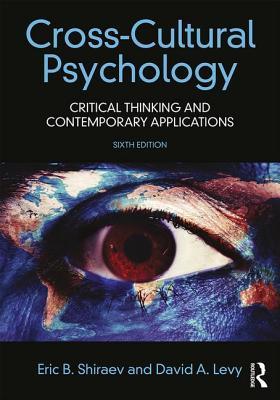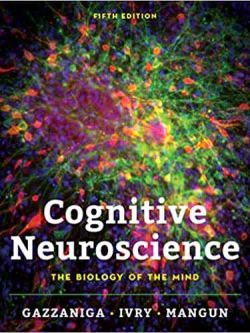Specifications
| book-author | Eric Shiraev ; David A. Levy |
|---|---|
| file-type | |
| isbn10 | 1138668389 |
| isbn13 | 9781138668386 |
| language | English |
| publisher | Routledge |
Book Description
“Cross-Cultural Psychology: Critical Thinking and Contemporary Applications” by Eric Shiraev and David A. Levy is a renowned international best-seller that offers a comprehensive exploration of the fascinating field of cross-cultural psychology. Written in an engaging and conversational style, this book is designed to make complex ideas accessible to a wide range of readers. The authors provide an interdisciplinary review of the theories and research in cross-cultural psychology, making it an invaluable resource for students, researchers, practitioners, and educators.
One of the standout features of this book is its unique critical thinking framework, which includes “Critical Thinking” boxes to help readers develop their analytical skills. Throughout the text, there are exercises that encourage active learning and foster classroom discussions, enhancing the reader's understanding of the material. The “Case in Point” sections review controversial issues and differing opinions regarding behavior in various cultural contexts, stimulating thought-provoking discussions.
The book places a strong emphasis on cross-cultural sensitivity, underlining the importance of empathy in communication and interpersonal relationships. It offers numerous real-world applications, making it an ideal resource for those preparing to work in multicultural environments, such as teaching, counseling, healthcare, and social work.
The authors, Eric Shiraev and David Levy, bring a diverse set of experiences to the book, with Shiraev having been raised in the former Soviet Union and Levy hailing from Southern California. This diversity of perspective adds depth to the exploration of topics like sensation, perception, consciousness, intelligence, human development, emotion, motivation, social perception, interaction, psychological disorders, and applied topics, all viewed through a cross-cultural lens.
In its 6th edition, the book includes updates and enhancements, such as over 200 recent references that focus on non-Western regions like the Middle East, Africa, Asia, and Latin America, as well as the US and Europe. It introduces a new chapter on personality and the self with an emphasis on gender identity, making it even more relevant and up-to-date. The opening vignettes in each chapter draw from current events, providing a contemporary context for the material. The book also features more examples related to the experiences of international students in the US and indigenous people, making it relatable to a diverse range of readers.
The addition of numerous figures and tables appeals to visual learners, enhancing the understanding of complex concepts. The 6th edition incorporates new research on a wide array of topics, including gender, race, religious beliefs, parenting styles, sexual orientation, ethnic identity and stereotypes, conflict resolution, immigration, intelligence, physical abuse, states of consciousness, DSM-5, cultural customs, evolutionary psychology, treatment of psychological disorders, and acculturation. The methodology chapter has been revised to provide more in-depth coverage of issues related specifically to cross-cultural research and a greater focus on qualitative and mixed research methods.
Instructors will find valuable resources on the companion website, including a comprehensive instructor manual, multiple-choice, true and false, short answer, and essay questions with answers for each chapter, as well as a complete set of tables and figures from the text. Students can access chapter outlines, flashcards of key terms, and links to further resources, making it an excellent tool for enhancing learning.
“Cross-Cultural Psychology: Critical Thinking and Contemporary Applications” is intended as a primary text for courses on cross-cultural psychology, multicultural psychology, cultural psychology, cultural diversity, and the psychology of ethnic groups. Additionally, it serves as an invaluable resource for practitioners, researchers, and educators who work in multicultural environments, helping them gain a deep understanding of the complexities of human behavior and psychology in diverse cultural contexts.













Reviews
There are no reviews yet.